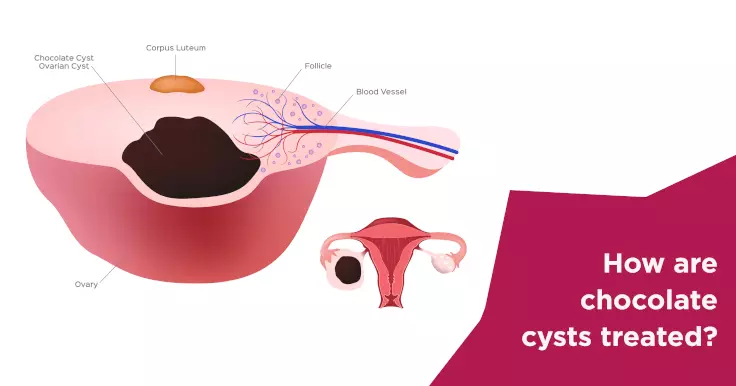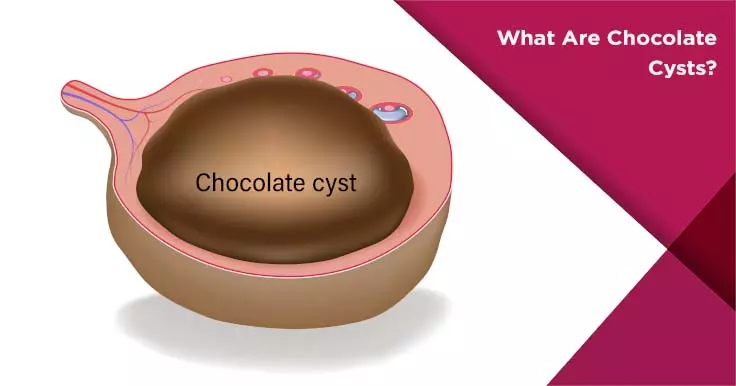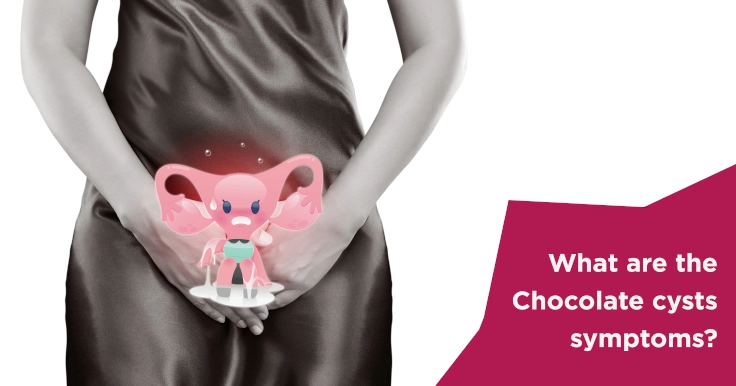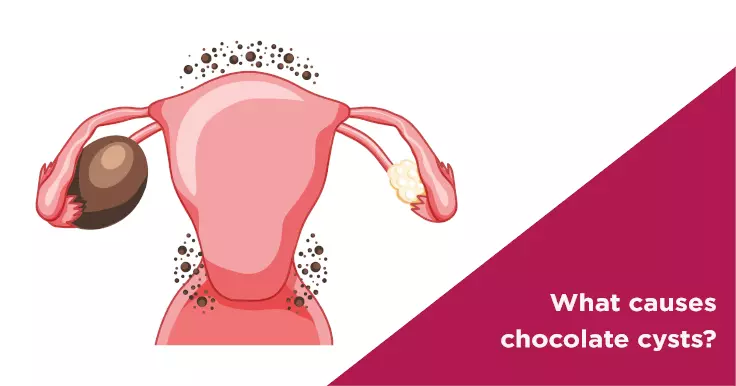Chocolate Cyst Treatment: Options and Insights

Chocolate cyst or endometrioma are fluid-filled cysts found deep within the ovaries. The name "chocolate cyst" comes due to the presence of a dark, tar-like substance in the cyst. The chocolate cyst is found mostly in women with endometriosis, who have high chances of retrograde menstruation or backflow of menstrual blood.
Chocolate Cyst Treatment
The treatment of the Chocolate cysts in the ovary involves the following methods:
Medications
The backflow of menstrual blood leads to the growth of the cyst. It is really important to slow down the growth of the cyst to avoid a ruptured ovarian cyst or torsion and twisting of the ovaries. To stop the growth of the cyst, medications may be provided to inhibit ovulation or to achieve an Anovulatory state.
Medications such as hormonal contraceptives, oral contraceptives, progesterone injections, Danazol, and gonadotropin-releasing hormone agonist or GnRH can be used. This treatment can be used to get a short span of relief from the symptoms. The long-term use of these medications can lead to certain unwanted side effects like hot flushes, weight gain, facial hair growth, loss of bone mass etc.
Surgery
For the chocolate cyst treatment, surgery can be an effective choice if the cyst is too big and the symptoms are severe. Surgical removal of cysts will be done if its size is greater than 4 centimeters to rule out the presence of a malignant tumor. Also, if a woman with chocolate cyst experiences severe chronic pelvic pain or is affected by an unexplained case of infertility, then surgery to remove the cyst will be indicated.
Surgery is done by laparoscopy or laparotomy, wherein a small incision is made and a long, thin tube with a camera and light is inserted to perform the procedure of removal of ovarian adhesions and endometriomas.
During the surgery, there are chances of healthy ovarian tissues been removed, which can cause fertility issues. So in younger women to preserve their fertility, conservative surgeries can be performed. But again in case of severe endometriomas, even conservative surgeries may not cure this condition. For women whose have children and are above 35 years of age, removal of the ovaries or uterus can be considered.
 Infertility Counselling
Infertility Counselling Female Infertility Treatment
Female Infertility Treatment Andrology Treatment
Andrology Treatment Fertility Enhancing Surgeries - Female
Fertility Enhancing Surgeries - Female Fertility Enhancing Surgeries - Male
Fertility Enhancing Surgeries - Male Endoscopy Treatment
Endoscopy Treatment IUI Treatment
IUI Treatment IVF Treatment
IVF Treatment ICSI Treatment
ICSI Treatment Advanced IVF Solutions
Advanced IVF Solutions Embryology
Embryology Vitrification Egg, Embryo, Sperm Freezing
Vitrification Egg, Embryo, Sperm Freezing Preimplantation Genetic Testing (PGT)
Preimplantation Genetic Testing (PGT) Donation Program Embryo / Egg / Sperm
Donation Program Embryo / Egg / Sperm Self-cycleTM IVF
Self-cycleTM IVF

 Self-cycleTM IVF
Self-cycleTM IVF










